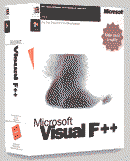

|
Gates and company are late once again entering the fragrance fray. Will they be competitive in the odor marketplace, or will they just make a big stink? |
Scratch and sniff web sites are ubiquitous on the Web today. Food companies, fragrance producers, and (perhaps most of all) the X-rated web sites are making use of smells on the Web in a big way.
But, as has been so often the case, Microsoft has lagged behind the rest of the world in their odor producing technology. Microsoft was late getting into the internet ballgame, because founder Bill Gates didn't see it as an important direction. Gates may have made a similar mistake when he failed to read the writing on the wall (or smell the odor on the net) and get his company involved in the fast-growing technology of odor transmission over the web.
Not that they didn't try, in their own way. Support for odors on the desktop came with Windows99. (One Plus!++ desktop theme, called Sulfuria, made the PC smell like rotten eggs.) And efforts like ActiveOdor with OLE (Odor Lingering and Emitting) did reach the beta stage, but without much enthusiasm generated among web developers.
But finally, in much the same way they did with the Internet itself, Microsoft has gotten a whiff of what odor on the net is all about, and is going after the odor market with a vengeance.
 "Microsoft has been
building odor-producing software for years!" says founder Bill Gates.
"It was just a matter of channeling that output towards a specific
deliberate goal, rather than just haphazardly generating things that
stink."
"Microsoft has been
building odor-producing software for years!" says founder Bill Gates.
"It was just a matter of channeling that output towards a specific
deliberate goal, rather than just haphazardly generating things that
stink."
Case in point, Microsoft Odor Producer, which is now bundled with Microsoft's line of web site design tools available through their SmellBuilder network. In addition, there is support for the increasingly popular FROMAGE standard with Microsoft Visual F++.
 "We're leading the
initiative for the development of object-oriented odors (OOO)," says
Gates. "Or, as the French would say, OOO La La!" But, as usual,
Microsoft's support for odors will have a distinctively Microsoft
flavor to it. "We will support both the Objective Odor Paradigm
(OOP) as
well as the Subjective Odor
Paradigm (SOP),
since each individual person experiences smells differently. I mean,
what smells good to me might not smell good to, say, Marc
Andreessen of Netscape."
"We're leading the
initiative for the development of object-oriented odors (OOO)," says
Gates. "Or, as the French would say, OOO La La!" But, as usual,
Microsoft's support for odors will have a distinctively Microsoft
flavor to it. "We will support both the Objective Odor Paradigm
(OOP) as
well as the Subjective Odor
Paradigm (SOP),
since each individual person experiences smells differently. I mean,
what smells good to me might not smell good to, say, Marc
Andreessen of Netscape."
When asked for details about what OOP and SOP would mesh with existing odor protocols, Gates refused to elaborate, saying only that "we haven't figured out how we're going to make ourselves totally incompatible with the rest of the civilized world just yet... but we're working on it."
For instance, there is speculation that interfacing with Microsoft's odor environment will require the use of a proprietary Microsoft Nose. Users with existing noses, it is believed, can upgrade to the proprietary format by getting a "Microsoft NoseJob."
This outrages advocates of "open odors" on the web. "I've heard some reports that Bill Gates has gone out and purchased the rights to a wide variety of smells," says Azmel Ufardid of the OSF (Open Smell Foundation), "including perfumes, foods, and fruit juice flavors–apple juice being the most notable omission from the list."
In reaction to this, the OSF and others are working to ensure that odors remain accessible and available to all. "Odors want to be smelled," asserts R. M. Smellman, leader of the GNOSES project. Smellman is helping to construct a library of public-domain well-known odors which can be used without licensing fees. The library, known as Common Scents, is available on the web at the GNOSES Project web site.
Ufardid thinks that something's fishy about Microsoft's sudden love affair with odor. "I think buying the rights to all of Jerry Lewis' movies will actually serve to alienate the French, rather than getting them to embrace Bill Gates and kiss him on both cheeks. I think the French realize that the cheeks Bill Gates expects them to kiss aren't the ones they're used to kissing."
But if Bill Gates thought he was getting the last sniff here, he was mistaken. ...
